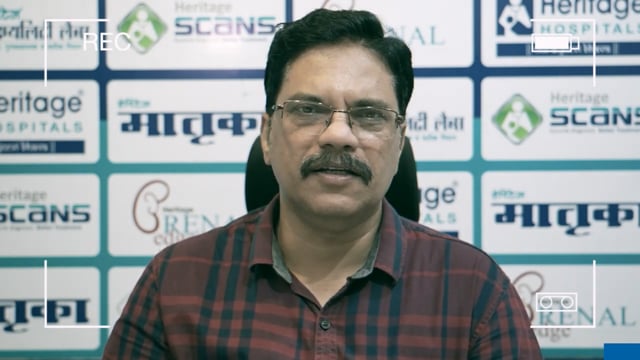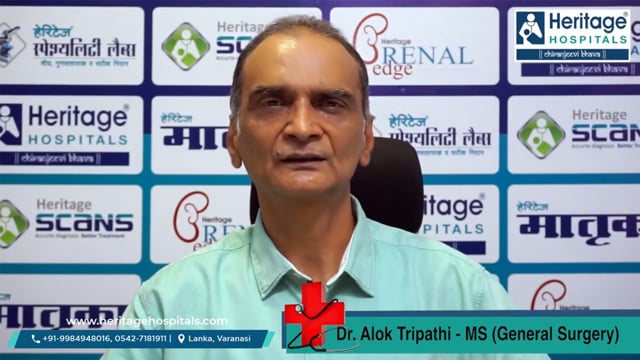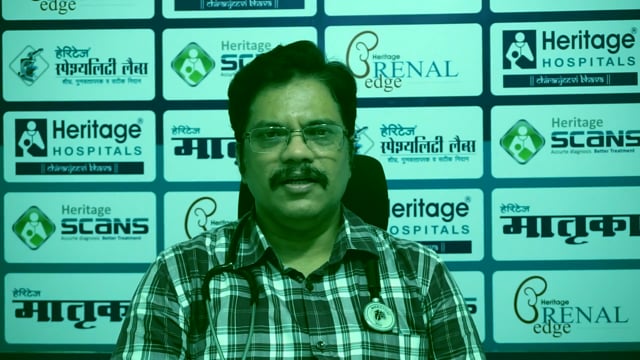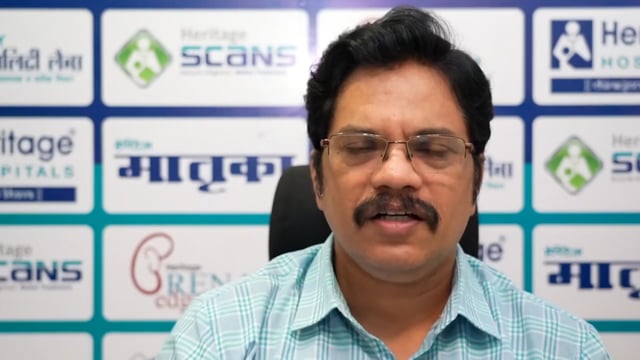
General & Laparoscopic Surgery
Home / Department / General & Laparoscopic Surgery
-
All Departments
-
 General Medicine
General Medicine - Department Overview
- Doctors
- Department Videos
- Common Diseases
- Surgery
- Department Facility
-
 General & Laparoscopic Surgery
General & Laparoscopic Surgery - Department Overview
- Doctors
- Department Videos
- Common Diseases
- Surgery
- Department Facility
-
 Gynaecology & Obstetrics
Gynaecology & Obstetrics - Department Overview
- Doctors
- Department Videos
- Common Diseases
- Surgery
- Department Facility
-
 Orthopedics (Bone Diseases)
Orthopedics (Bone Diseases) - Department Overview
- Doctors
- Department Videos
- Common Diseases
- Surgery
- Department Facility
-
 Cardiology (Heart)
Cardiology (Heart) - Department Overview
- Doctors
- Department Videos
- Common Diseases
- Surgery
- Department Facility
-
 Opthalmology (Eye)
Opthalmology (Eye) - Department Overview
- Doctors
- Department Videos
- Common Diseases
- Surgery
- Department Facility
-
 Dentistry
Dentistry - Department Overview
- Doctors
- Department Videos
- Common Diseases
- Surgery
- Department Facility
-
 Neuro Medicine (Brain & Spine)
Neuro Medicine (Brain & Spine) - Department Overview
- Doctors
- Department Videos
- Common Diseases
- Surgery
- Department Facility
-
 Neuro Surgery
Neuro Surgery - Department Overview
- Doctors
- Department Videos
- Common Diseases
- Surgery
- Department Facility
-
 Paediatric Medicine (Child Specialty)
Paediatric Medicine (Child Specialty) - Department Overview
- Doctors
- Department Videos
- Common Diseases
- Surgery
- Department Facility
-
 Psychiatry
Psychiatry - Department Overview
- Doctors
- Department Videos
- Common Diseases
- Surgery
- Department Facility
-
 Physiotherapy
Physiotherapy - Department Overview
- Doctors
- Department Videos
- Common Diseases
- Surgery
- Department Facility
-
 Dietectics
Dietectics - Department Overview
- Doctors
- Department Videos
- Common Diseases
- Surgery
- Department Facility
-
 Nephrology (Kidney)
Nephrology (Kidney) - Department Overview
- Doctors
- Department Videos
- Common Diseases
- Surgery
- Department Facility
-
 Urology
Urology - Department Overview
- Doctors
- Department Videos
- Common Diseases
- Surgery
- Department Facility
-
 Paediatric Surgery
Paediatric Surgery - Department Overview
- Doctors
- Department Videos
- Common Diseases
- Surgery
- Department Facility
-
 Chest & Respiratory Medicine (Lungs)
Chest & Respiratory Medicine (Lungs) - Department Overview
- Doctors
- Department Videos
- Common Diseases
- Surgery
- Department Facility
-
 ENT (Ear, Nose & Throat)
ENT (Ear, Nose & Throat) - Department Overview
- Doctors
- Department Videos
- Common Diseases
- Surgery
- Department Facility
-
 Plastic Surgery & Burn
Plastic Surgery & Burn - Department Overview
- Doctors
- Department Videos
- Common Diseases
- Surgery
- Department Facility
-
 Gastroenterology (Liver & Stomach)
Gastroenterology (Liver & Stomach) - Department Overview
- Doctors
- Department Videos
- Common Diseases
- Surgery
- Department Facility
-
 Surgical Oncology
Surgical Oncology - Department Overview
- Doctors
- Department Videos
- Common Diseases
- Surgery
- Department Facility
-
 Pain Management Clinic
Pain Management Clinic - Department Overview
- Doctors
- Department Videos
- Common Diseases
- Surgery
- Department Facility
-
 Radiology
Radiology - Department Overview
- Doctors
- Department Videos
- Common Diseases
- Surgery
- Department Facility
-
 Laboratory
Laboratory - Department Overview
- Doctors
- Department Videos
- Common Diseases
- Surgery
- Department Facility
-
 Interventional Radiology
Interventional Radiology - Department Overview
- Doctors
- Department Videos
- Common Diseases
- Surgery
- Department Facility
-
 Anaesthesia
Anaesthesia - Department Overview
- Doctors
- Department Videos
- Common Diseases
- Surgery
- Department Facility
-
 Breast Disease
Breast Disease - Department Overview
- Doctors
- Department Videos
- Common Diseases
- Surgery
- Department Facility
General & Laparoscopic Surgery
-
All Departments
-
 General Medicine
General Medicine - Department Overview
- Doctors
- Department Videos
- Common Diseases
- Surgery
- Department Facility
-
 General & Laparoscopic Surgery
General & Laparoscopic Surgery - Department Overview
- Doctors
- Department Videos
- Common Diseases
- Surgery
- Department Facility
-
 Gynaecology & Obstetrics
Gynaecology & Obstetrics - Department Overview
- Doctors
- Department Videos
- Common Diseases
- Surgery
- Department Facility
-
 Orthopedics (Bone Diseases)
Orthopedics (Bone Diseases) - Department Overview
- Doctors
- Department Videos
- Common Diseases
- Surgery
- Department Facility
-
 Cardiology (Heart)
Cardiology (Heart) - Department Overview
- Doctors
- Department Videos
- Common Diseases
- Surgery
- Department Facility
-
 Opthalmology (Eye)
Opthalmology (Eye) - Department Overview
- Doctors
- Department Videos
- Common Diseases
- Surgery
- Department Facility
-
 Dentistry
Dentistry - Department Overview
- Doctors
- Department Videos
- Common Diseases
- Surgery
- Department Facility
-
 Neuro Medicine (Brain & Spine)
Neuro Medicine (Brain & Spine) - Department Overview
- Doctors
- Department Videos
- Common Diseases
- Surgery
- Department Facility
-
 Neuro Surgery
Neuro Surgery - Department Overview
- Doctors
- Department Videos
- Common Diseases
- Surgery
- Department Facility
-
 Paediatric Medicine (Child Specialty)
Paediatric Medicine (Child Specialty) - Department Overview
- Doctors
- Department Videos
- Common Diseases
- Surgery
- Department Facility
-
 Psychiatry
Psychiatry - Department Overview
- Doctors
- Department Videos
- Common Diseases
- Surgery
- Department Facility
-
 Physiotherapy
Physiotherapy - Department Overview
- Doctors
- Department Videos
- Common Diseases
- Surgery
- Department Facility
-
 Dietectics
Dietectics - Department Overview
- Doctors
- Department Videos
- Common Diseases
- Surgery
- Department Facility
-
 Nephrology (Kidney)
Nephrology (Kidney) - Department Overview
- Doctors
- Department Videos
- Common Diseases
- Surgery
- Department Facility
-
 Urology
Urology - Department Overview
- Doctors
- Department Videos
- Common Diseases
- Surgery
- Department Facility
-
 Paediatric Surgery
Paediatric Surgery - Department Overview
- Doctors
- Department Videos
- Common Diseases
- Surgery
- Department Facility
-
 Chest & Respiratory Medicine (Lungs)
Chest & Respiratory Medicine (Lungs) - Department Overview
- Doctors
- Department Videos
- Common Diseases
- Surgery
- Department Facility
-
 ENT (Ear, Nose & Throat)
ENT (Ear, Nose & Throat) - Department Overview
- Doctors
- Department Videos
- Common Diseases
- Surgery
- Department Facility
-
 Plastic Surgery & Burn
Plastic Surgery & Burn - Department Overview
- Doctors
- Department Videos
- Common Diseases
- Surgery
- Department Facility
-
 Gastroenterology (Liver & Stomach)
Gastroenterology (Liver & Stomach) - Department Overview
- Doctors
- Department Videos
- Common Diseases
- Surgery
- Department Facility
-
 Surgical Oncology
Surgical Oncology - Department Overview
- Doctors
- Department Videos
- Common Diseases
- Surgery
- Department Facility
-
 Pain Management Clinic
Pain Management Clinic - Department Overview
- Doctors
- Department Videos
- Common Diseases
- Surgery
- Department Facility
-
 Radiology
Radiology - Department Overview
- Doctors
- Department Videos
- Common Diseases
- Surgery
- Department Facility
-
 Laboratory
Laboratory - Department Overview
- Doctors
- Department Videos
- Common Diseases
- Surgery
- Department Facility
-
 Interventional Radiology
Interventional Radiology - Department Overview
- Doctors
- Department Videos
- Common Diseases
- Surgery
- Department Facility
-
 Anaesthesia
Anaesthesia - Department Overview
- Doctors
- Department Videos
- Common Diseases
- Surgery
- Department Facility
-
 Breast Disease
Breast Disease - Department Overview
- Doctors
- Department Videos
- Common Diseases
- Surgery
- Department Facility
General & Laparoscopic Surgery
Consult Now
The Department of General and Laparoscopic Surgery at Heritage Hospital is dedicated to providing high-quality surgical care for various medical issues. The surgeons at the best laparoscopic surgery hospital in Varanasi are experienced in performing both traditional open surgery and advanced laparoscopic techniques to provide optimal and successful results. However, as leading hospital facility in Varanasi, we strive to make surgeries and treatment better, and that's why, for patients who require surgery, we prefer laparoscopic surgery.
Doctors at Heritage Hospital, one of the best laparoscopic surgery hospitals in Varanasi, offer tailored and personalized treatment for various ailments, from hernia repair and appendectomy to gallbladder surgery and other specialized interventions. Laparoscopic surgery is a minimally invasive surgery that permits the surgeon to access the inside of your abdomen and pelvis without making massive and several incisions. It ensures quick recovery, less hospital stay, minimal discomfort, and reduced scarring.
Laparoscopic surgeries are most required in gynaecology, gastroenterology, and urology cases. With Heritage Hospital's multidisciplinary approach, laparoscopic doctors are available round the clock to carry out surgical procedures or remove a tissue sample for further biopsy.
At Heritage Hospital, we have four modern operation rooms that have safety alarms to keep everyone safe. We also have advanced machines like AHU (Air Handling Units), gas supplies connected to all the rooms, special equipment for giving anaesthesia and monitoring systems to ensure everything goes well during surgeries, including laparoscopic. Moreover, our doctors follow international standards and procedures for sterilization, including the use of HEPA filters to avoid the chances of cross-infection.
Heritage Hospital - The Recommended Laparoscopic Surgery Hospital in Varanasi
At Heritage Hospital, we understand that undergoing surgery is a significant event, and our doctors at the Laparoscopic Department understand your concerns. Our doctors prioritize patients' well-being, safety, and comfort, and we believe in establishing open communication with patients regarding the surgery, its benefits, drawbacks, alternative options, and possibly the further course of action if the surgery doesn't result in desired outcomes. Here are some reasons why Heritage Hospital is regarded as the best laparoscopic surgery hospital in Varanasi:
-
Multi-Disciplinary Approach
Our multi-disciplinary approach combines the skills of various medical doctors, healthcare professionals, and support staff to create a comprehensive and holistic approach to surgical care. Each patient is unique, and we bring together doctors, anesthesiologists, radiologists, and pathologists to ensure a thorough evaluation of the patient's condition from multiple perspectives.
-
Well-Built Infrastructure
As the leading hospital for laparoscopic surgery in Varanasi, we have access to advanced technology medical equipment, instruments, diagnostic facilities and others to perform all the laparoscopic surgeries seamlessly and accurately. From sophisticated anaesthesia equipment to state-of-the-art surgical instruments, our doctors have sufficient resources to provide the highest standards of care.
-
Dedicated Critical Care Support
The General and Laparoscopic Surgery Department has a well-trained medical team equipped for emergencies to monitor and manage the health conditions of critically ill patients. Our state-of-the-art ICUs are equipped with advanced monitoring and life support equipment for post-operative care of patients. Moreover, we have a dedicated PACU (Post Anesthesia Care Unit) to monitor the health of patients waking up after surgery and focus on their recovery.
Doctors Available in General & Laparoscopic Surgery
The surgeons and doctors in the laparoscopic surgery hospital in Varanasi are proficient in laparoscopic surgery and aligning the treatment plan to fit in the best interests of the patients. However, at Heritage Hospital, before recommending laparoscopic surgery, our doctors will assess your condition and suggest non-surgical treatments. The surgeries are always the last resort when the non-surgically treatment fails to work or improve the condition. Meet the highly skilled doctors and medical professionals at Heritage Hospital for laparoscopic surgery:

Dr. A.K. Tripathi
(MS (General Surgery))
Designation:
Senior Consultant General Surgeon
Category:
General & Laparoscopic Surgery
Specialization:
General Surgery

Dr. Girish Pandey
(MBBS, MS (General Surgery))
Designation:
Senior Consultant General Surgery
Category:
General & Laparoscopic Surgery
Specialization:
General Surgery
What do we Treat? - Common Diseases and Conditions
Laparoscopic surgery is a minimally invasive surgical technique used to cure ailments of abdominal and pelvic areas. With the expertise of nearly three decades of completing surgeries with a high success rate and catering to patients coming from Bihar, Jharkhand, and West and East UP, here are some common medical conditions that require laparoscopic surgery:
Chronic Pancreatitis
It is a progressive inflammatory disorder that causes irreversible destruction of endocrine and exocrine pancreatic parenchyma caused by atrophy and replacement with fibrotic tissue.
Hernia
Hernia is when a part of an organ protrudes through the muscle wall or a bulging of an organ or tissue through the abnormal opening, usually in the abdomen and groin.
Appendicitis
Appendicitis is when the appendix, a tiny organ attached to the large intestine, becomes inflamed and becomes filled with pus.
Varicose Veins
Varicose veins are those close to the skin and become twisted and enlarged veins. It can lead to ulcers (open sores), bleeding, and skin discolouration.
Fibroids
Fibroids are non-cancerous growth in the uterus, which usually shows up during the phase when women can get pregnant and give birth.
Ovarian Cyst
An ovarian cyst is a solid or fluid-filled sac or pocket within or on the surface of an ovary. Ovarian cysts usually go away within months; however, some can become twisted and rupture, creating complications.
Haemorrhoids
Haemorrhoids, also called piles, are swollen and inflamed veins in the anus and lower rectum that lead to discomfort and bleeding.
Surgery Available in General & Laparoscopic Surgery
Various surgery procedures are committed by professional doctors at Laparoscopic Surgery Hospital in Varanasi. The surgery may change per the medical ailment and requirement, and a consultation with doctors at Heritage Hospital will give you a clear picture. Here are some of the surgeries performed by expert doctors in the General and Laparoscopic Department:
Laproscopic Surgery for Gall Bladder Stone
With a board-certified laparoscopic doctor in Varanasi in our team, Heritage Hospital is one of the leading hospitals to remove gallbladder stones through a minimally invasive procedure. Our doctors at the General Surgery Department follow a patient-centric approach where the treatment plan is developed regarding the patient's best interest.
Cholelithiasis is a prevalent gastrointestinal disorder where gallstones are present in the gallbladder. Laparoscopic cholecystectomy (LC) has emerged as the gold standard for managing gallbladder stone disease due to its advantages over traditional open cholecystectomy.
When is Laparoscopic Surgery for Gallbladder Stones Required?
Laparoscopic surgery for gallbladder stones in Varanasi is not the last resort but one of the effective treatment options for managing cholelithiasis. Usually, the doctors diagnose and evaluate the condition before suggesting a proper treatment plan and conservative treatments. The doctor might recommend medications to dissolve certain types of stones, OTC or prescribed pain medications if the patient has small, cholesterol-based gallstones and is asymptomatic or experiences mild symptoms. However, here are some instances where surgery is required:
-
If the gallstones cause symptoms such as severe abdominal pain (biliary colic), gallbladder inflammation (cholecystitis), or complications like gallstone pancreatitis or common bile duct stones
-
If a patient experiences recurrent episodes of gallstone-related pain or complications
-
Sometimes, surgery is recommended if the patient is at high risk of developing complications due to gallstones, such as those with diabetes or compromised immune systems, to prevent potential complications.
-
If there are large gallstones that can obstruct the bile duct
-
Surgical removal of the gallbladder is recommended in cases where gallbladder cancer is suspected or confirmed.
How is it performed?
Laparoscopic surgery for gallbladder stones or Laparoscopic cholecystectomy is a minimally invasive procedure for gallbladder stone removal or to remove the gallbladder entirely. It offers myriad benefits over traditional open cholecystectomy, like reduced postoperative pain, shorter hospital stays, smaller wounds and scars, and faster recovery. Here is how it is performed by the laparoscopic doctor in Varanasi:
-
Before the surgical procedure, the doctors will ask the patient for a few tests, like blood tests, abdominal ultrasounds, and urinalysis, to align the treatment plan.
-
During the surgery day, the medical staff administer anaesthesia, and the patient is positioned in the supine, anti-Trendelenburg position.
-
After prepping the abdomen using sterile techniques, the surgeon will make a small incision near the umbilicus to access the abdominal cavity.
-
Carbon dioxide gas is insufflated to create a pneumoperitoneum (inflate the surgical area) to facilitate laparoscopic visualization.
-
Multiple trocars, specialized cannulas with valves, are strategically inserted through small incisions in the abdominal wall.
-
The laparoscope, a fibre-optic camera, is introduced through one of the trocars, enabling the surgical team to visualize the gallbladder, liver, and surrounding structures.
-
After careful dissection, the doctors isolate the cystic duct and cystic artery and clip it to ensure safe gallbladder removal without bile leakage.
-
Following adequate dissection and vascular control, the gallbladder is freed from its attachments and carefully removed through one of the trocar incisions. Sometimes, a specimen retrieval bag is used to extract the gallbladder safely.
-
Trocar incisions are typically closed with absorbable sutures, and the skin incisions are closed using skin adhesives or sutures.
Why Choose Heritage Hospital?
Heritage Hospital is one of the leading healthcare facilities, providing stone removal at a nominal cost through laparoscopic surgery in Varanasi. Our well-established infrastructure assists our doctors in providing patients with the highest standards of care to alleviate their symptoms and pain. Here is why Heritage Hospital is a perfect choice for gallbladder stones removal treatment:
-
A dedicated operating room to perform laparoscopic cholecystectomy, equipped with laparoscopic video equipment.
-
The department can access precise and advanced laparoscopic instruments, including trocars, graspers, scissors, high-definition laparoscopic cameras and monitors, and energy devices.
-
State-of-the-art post-anesthesia care unit (PACU) with monitoring equipment, oxygen delivery systems, and medication administration capabilities.
-
The hospital has advanced diagnostic facilities, like fluoroscopy, ultrasound, and intraoperative cholangiography.
-
Advanced critical care support to manage the complications.
Are there any complications associated with the surgery?
At Heritage Hospital, the doctors and medical team in the General Surgery Department follow standard protocols before, during, and after the surgery to minimize the risk of infections. Usually, there are hardly major complications suffered by the patients. However, there are complications associated with laparoscopic surgery for gallbladder stones. Bile juice leakage, bleeding, anaesthesia's side effects, hernia, injury to nearby structures, like intestines, liver, or bile ducts, peritonitis (inflammation and infection in abdomen), and UTI (urinary tract infection).
Here are some protocols followed by our surgeon and medical staff that ensure optimal recovery and reduce the chances of problems becoming a hurdle in the recovery:
-
The laparoscopic doctors in Varanasi for the surgery ensure that the patient is positioned correctly and maintains proper padding and support to prevent nerve injuries and pressure ulcers.
-
The medical team during the surgery implies hemostasis to prevent postoperative bleeding complications.
-
Minimize tissue handling to reduce the risk of postoperative adhesions, and administer appropriate prophylactic antibiotics to prevent surgical site infections.
-
After the surgery, the patient is admitted to the post-anesthesia care unit (PACU), where a well-trained medical team of doctors and nurses closely monitors the patient and takes prompt action if there are any complications.
Schedule an Appointment Today!
Laparoscopic surgery for gallbladder stones in Varanasi is one of the effective and standard treatments to remove the stones if surgery is required. Heritage Hospital's General Surgery Department doctors are available 24x7 for consultations and diagnoses if you are suffering from gallbladder stone symptoms. Our well-trained and certified medical team will create a comprehensive treatment plan based on your preferences, diagnosis, overall health, and other considerations to ensure complete recovery with minimized risks.
Laproscopic Surgery For Hernia
The Heritage Hospital General Surgery Department boasts board-certified doctors with multi-decade experience treating hernias. Our doctors often implement the latest advanced surgical methodology, the minimally invasive, to repair different types of hernias, including inguinal hernias, ventral hernias, and hiatal hernias. Surgery for hernia, or laparoscopic herniorrhaphy or laparoscopic hernioplasty, is one of the most effective and established treatments to treat hernia, and our doctors have access to best-in-class surgical equipment and diagnostic facilities to create a suitable treatment plan to alleviate the pain and symptoms.
A hernia is the protrusion or displacement of an organ, tissue, or structure from its usual anatomical location through an abnormal opening or weakened area in the body's surrounding musculature or connective tissue. The displacement typically results in a bulging or sac-like formation, which may be visible or palpable beneath the skin. Simply saying, a hernia is a gap in the abdominal wall that develops from a weakness in the muscles, and if left untreated, it can cause severe health complications, like infection or blood loss to the intestine.
Different Types of Hernia
Based on the site of occurrence, Hernia is of various types, like inguinal, incisional, hiatal, femoral, ventral and umbilical hernia. The treatment approach for hernias depends on the type, size, location, and symptoms. Sometimes, hernias are small and asymptomatic and do not require surgical intervention; however, surgery is required if the hernia is painful and causes complications, like pain, discomfort, or complications, such as strangulation. Here are different types of hernia:
-
Inguinal Hernia - It is located in the groin area that protrudes through the inguinal canal. It is one of the most common types of hernias, often appearing as a bulge in the groin or scrotum.
-
Femoral Hernia - It is more common in women and occurs when abdominal contents protrude through the femoral canal, a passage near the upper thigh.
-
Umbilical Hernia - It is more common in infants, can also affect adults, and develops when tissue pushes through the abdominal wall near the navel.
-
Incisional Hernia - It occurs at the site of a previous surgical incision where the abdominal muscles may have weakened, allowing tissue to bulge through the scar tissue.
-
Hiatal Hernia - In a hiatal hernia, a portion of the stomach protrudes through the diaphragm into the chest cavity. It is related to the hiatus (an opening) in the diaphragm through which the oesophagus passes.
-
Ventral Hernia - Ventral hernias can develop anywhere on the anterior abdominal wall and are not located in the groin or umbilical region due to weakened abdominal muscles.
How is Surgery Performed?
As per hernia surgery doctors in Varanasi, hernias do not resolve independently, and a definitive treatment plan, which is a surgical repair, is essential. Here is how the surgery is performed:
-
Before the surgery, the doctor will evaluate the hernia's condition through diagnostic facilities, like CT-Scan, fluoroscopy, ultrasound, and endoscopy (for hiatal hernia).
-
During the surgery, the medical team will administer the anaesthesia and a small incision is made near the umbilicus.
-
The medical team will use carbon dioxide gas (harmless) to inflate the abdomen, and additional small incisions (typically 5mm to 12mm) are made at specific locations. Trocars, specialized cannulas with valves, are introduced through these incisions to enable access to laparoscopic instruments.
-
A laparoscope, equipped with a camera, is inserted through trocars, and the herniated tissue or organs are gently manipulated and reduced. After this, the hernia sac is dissected, and the size and characteristics of the hernia defect are evaluated.
-
A synthetic mesh, designed to reinforce the weakened abdominal wall and prevent hernia recurrence, is introduced through one of the trocars. The mesh is properly positioned to cover the hernia defect and overlap its margins.
-
The surgeons use specialized fixation devices, sutures, or tacks to fix the mesh and prevent displacement.
-
After hemastasis, the laparoscopic instruments are removed, and incisions are closed using sutures.
Why Opt Heritage Hospitals for Laparoscopic Surgery For Hernia?
Heritage Hospital is one of Varanasi's leading healthcare facilities to provide the highest standard of care to patients recovering from hernia. We provide a holistic treatment plan where our doctors and medical team assist and guide patients from first consultation to postoperative recovery. Here are some reasons why we are one of the preferred hospitals for treatment in Varanasi:
-
State-of-the-art operating rooms with all the essentials required during the operations.
-
Well-built infrastructure with all the diagnostic, pathological, and other facilities available for easy access.
-
High-tech diagnostic facilities, like 3 Tesla MRI, CT Scans, radiology and imaging facilities and surgical equipment for precise dissection to avoid harm to surrounding tissues.
-
Advanced critical care centres with emergency medical facilities, equipment, and resources are available in case of unexpected complications or emergencies during surgery.
-
A central sterilization unit to ensure all the equipment is sterilized before any use.
-
A dedicated PACU (Post-Anesthesia Care Unit) to monitor the patient immediately after the surgery to look for any postoperative complications and recovery.
Heritage Hospital provides flexible payment and insurance cover facilities to cover the surgery cost for a hernia. Moreover, our multi-disciplinary approach enables our doctors to make a comprehensive treatment plan to treat hernia, keeping all the patient's health aspects in mind. It helps the doctor to align the strategy accordingly and avoid complications. Schedule an appointment today to get relief from a hernia through minimally invasive laparoscopic surgery for hernia in Varanasi.
Laproscopic Surgery for Appendix
At Heritage Hospital, the doctors implement minimally invasive procedures to remove an inflamed or infected appendix. Also called a laparoscopic appendectomy, it is one of the preferred surgical methods to alleviate the pain and symptoms of appendicitis than open surgery as it offers many benefits, like shorter hospital stay duration, quick recovery, and minimal scars.
Appendicitis refers to the acute inflammation of the vermiform appendix, a small, tube-like structure attached to the cecum, the initial part of the large intestine or colon. The inflammation is caused by an obstruction of the appendix, often by a small piece of faecal material, a foreign body, or a swollen lymph node. When the appendix becomes obstructed and inflamed, it can lead to various symptoms and complications.
Per our appendix doctors in Varanasi, surgery is not the last resort to treat appendicitis. In some cases, if it is detected in the initial stage, antibiotics can significantly help to avert the need for surgery, especially in children. However, if the antibiotics and medication do not help relieve the pain and symptoms, the General Surgery Department doctors suggest surgery is the preferred appendix cure in Varanasi.
Why Should You Opt for Heritage Hospitals For Laparoscopic Appendicectomy?
At Heritage Hospital, our infrastructure is equipped to provide immediate assistance to the patient. With our patient-centric approach, our doctors will align the treatment plan for the patient's best interest, keeping all the essential factors, like the severity of the condition, overall health, and the patient's consent for surgery. Here are some facilities that make Heritage Hospital one of the best appendix hospitals in Varanasi:
-
State-of-the-art operating rooms with all the essential amenities required to perform the surgery seamlessly
-
24x7 emergency admission and consultation available.
-
A well-trained medical team includes surgeons experienced in laparoscopic techniques, assistant surgeons, technicians, and support staff.
-
Specialized areas, PACU (Post-Anesthesia Care Unit), where the patients recover post-surgery before being transferred to regular hospital rooms to check for complications.
-
Easy access to radiology and imaging facilities and advanced and latest laparoscopic equipment for the surgery.
-
Flexible payment and insurance facilities are available for appendix treatment in Varanasi.
What Happens in the Appendix Surgery in Varanasi?
Before proceeding with the surgery, our appendix doctor in Varanasi will evaluate the different diagnostic reports, like complete blood count tests and inflammatory markers, like C-protein reactive, to assess the signs of infection, urinalysis to look for urinary tract infections, and ultrasound and CT-scan to assess the severity of inflammation. After assessing the reports, the surgeons and doctors create a treatment plan and here is a description of how the laparoscopic surgery for Appendix in Varanasi is done:
-
The medical team administers general anaesthesia and ensures the patient is in a supine or modified lithotomy position to access the abdomen.
-
Using sterile equipment, the surgeons make 3-4 small incisions near the umbilicus and lower abdomen to insert trocars, which are specialized cannulas with valves to create access points for laparoscopic instruments.
-
Through one of the trocars, the medical team inserts a laparoscope, a long slender tube with a camera on its tip, to examine the appendix and surrounding structures.
-
The surgeon utilizes graspers, scissors, and energy devices to dissect and free the appendix from its surrounding tissues and secure its base using ligatures or surgical staples.
-
The appendix is removed through one of the trocars using a retrieval bag. Once the bleeding is stopped, the medical team removes all the laparoscopic instruments and closes the incision using sutures.
Does the Surgery Pose Any Complications?
With the technological advancement in medical sciences, surgical methodologies may evolve, minimizing the surgery's risk and side effects and ensuring optimal results. That's why Heritage Hospital is always up-to-date with all the new technologies, and the doctors at the General Surgery Department prefer minimally invasive surgery for appendix cures in Varanasi.
The Laparoscopic Surgery for Appendix in Varanasi is a minimally-invasive procedure where the surgeons and doctors make a small incision to access the appendix and remove it. Usually, it has fewer risks associated with it as compared to open surgery. However, in rare instances, the patient can display complications like:
-
Post-operative pain
-
Sepsis
-
Scar formation
-
Bowel Blockage
-
Injury to adjacent organs.
Heritage Hospital provides holistic care, so from initial consultation to post-operative recovery and discharge, our doctors and medical team will help you. Our doctors and surgeons follow all the essential protocols to minimize the risk of infection and utilize precise equipment to ensure no damage is done to nearby structures and tissues.
Moreover, our specialized medical team closely monitors patients' post-operative recovery and promptly takes action if any complication occurs. Besides, our doctors will schedule a follow-up appointment to monitor your recovery and suggest necessary lifestyle changes to cope with the surgery and ensure a healthy recovery.
Heritage Hospital is your companion in treating your health concerns, and your safety and health are our top-most priority. If you are experiencing any symptoms, schedule an appointment with our doctor to manage the symptoms and avoid escalating into something worse.
Cryosurgery For Piles
Heritage Hospital is a multi-speciality hospital where we provide comprehensive and essential treatment facilities to assist patients in managing their symptoms and alleviating their pain. Our General Surgery Department has access to state-of-the-art equipment and diagnostic facilities that allow our doctors to precisely diagnose the severity of the condition and align the treatment plan accordingly. Moreover, our doctors follow a patient-centric approach, where the doctors suggest the treatment methodology to provide relief from the symptoms.
Piles, or haemorrhoids, are vascular structures in the anal canal composed of blood vessels, connective tissue, and smooth muscle. It plays an important physiological function in aiding to control bowel movements; however, they becomes problematic when swollen, inflamed, or distended.
Treatment options for haemorrhoids vary from non-surgical methods to minimally invasive surgical procedures, and the choice of treatment depends on the severity of the condition, the specific type of haemorrhoids, and the patient's overall health. Cryosurgery for piles in Varanasi is one of the preferred minimally invasive procedures in case of internal haemorrhoids; however, it is not the last resort.
What Happens in Cryosurgery for Piles?
Cryosurgery for piles treatment in Varanasi is recommended in cases of persistent internal haemorrhoids, symptomatic haemorrhoids, and if there is a mix of both internal and external haemorrhoids. However, the treatment mostly depends on the condition and severity, as different non-surgical medications are available to treat piles without surgery.
Here is a description of how cryosurgery for piles in Varanasi is carried out:
-
The doctors thoroughly evaluate the patient's condition to assess the medical condition and the best treatment. The doctor estimates the requirement of cryosurgery based on the patient's medical history, physical examination, and diagnostic tests.
-
The medical team will select the best cryogen, a substance or material capable of achieving super-low temperatures, like liquid nitrogen (LN2) and nitrous oxide (N2O).
-
The surgeon administers local anaesthesia during the surgery and ensures the patient is positioned appropriately to access the treatment area.
-
A specialized cryosurgical probe or cryoprobe is used to apply the cryogen to the target tissue. The cryoprobe is designed with a tip that allows for controlled and precise delivery of cold temperatures.
-
The cryogen is released from the cryoprobe and comes into contact with the target tissue. As the cryogen absorbs heat from the surrounding tissue, it causes a rapid decrease in temperature at the treatment site.
-
The extreme cold temperatures achieved by the cryogen lead to the formation of ice crystals within the cells, disrupting their structure and function. The freezing process causes cellular injury and leads to cell death or necrosis.
-
Cryosurgery in Varanasi may require a series of freeze-thaw cycles. After the freezing, the physician allows it to thaw partially or completely, then repeats the freezing process. Multiple cycles are performed to ensure thorough treatment and destruction of the targeted tissue.
-
After cryosurgery is complete, the treated area is carefully examined. Any remaining ice or frozen tissue may be removed, and the wound is dressed.
Are there any complications associated with it?
It is a minimally invasive procedure, so the chances of complications are less than in traditional open surgery, like hemorrhoidectomy. However, the patients may experience pain, discomfort, swelling, or redness during or after cryosurgery. In rare instances, the patient might display complications like blister formation, skin discolouration, nerve damage, recurrence, scarring and infection.
At Heritage Hospital, our doctors and medical team closely monitor every patient to ensure prompt actions to minimize the severity of the complications. Our doctors utilize endoscopy or ultrasound imaging techniques to visualize and precisely work on the haemorrhoids to avoid nerve damage. Moreover, the piles surgery doctor in Varanasi will provide post-operative care instructions, including wound care and any necessary follow-up appointments, to monitor healing and address any issues promptly.
Why Should You Opt For Heritage Hospital For Cryosurgery for Piles?
Heritage Hospital is one of the leading hospitals for providing comprehensive and highest standards of care to alleviate pain and symptoms of haemorrhoids. With state-of-the-art equipment and well-built infrastructure, we are dedicated to providing holistic patient care, from initial consultation to post-operative recovery. Here are some facilities available at the hospital that make it one of the best hospitals for cryosurgery:
-
Multi-decade and board-certified doctors and surgeons to assist patients with haemorrhoid symptoms.
-
A dedicated and sterilized operating room equipped with appropriate lighting and patient positioning capabilities.
-
Specialized cryoprobe instruments, cryosurgical equipment, and temperature monitoring devices to ensure seamless surgical procedures.
-
State-of-the-art imaging facilities are easily accessible 24x7.
-
Advanced critical care unit with a dedicated medical team to manage complications or unexpected events during cryosurgery in Varanasi.
-
Well-built infrastructure with essential safety measures to protect both patients and the medical team from exposure to extreme cold and cryogen leaks
Schedule an Appointment Today!
Heritage Hospital experts will analyze your symptoms and conditions to suggest the best haemorrhoid treatment. Our doctors will try to treat the piles using non-surgical treatments like rubber band ligation, infrared coagulation, and medication to treat the piles. Moreover, besides cryosurgery, different minimally invasive surgeries are available, like hemorrhoidal artery ligation (HAL) and sclerotherapy. Schedule an appointment today to get the best treatment facilities for the piles treatment in Varanasi.
Surgery For Varicose Veins
At Heritage Hospital, the doctors at the General Surgery Department offer comprehensive patient care for different medical ailments and conditions, including varicose veins. Varicose veins are superficial and dilated veins that develop when the venous system experiences chronic stress or becomes inefficient in returning blood to the heart.
Varicose vein treatment in Varanasi encompasses a range of medical interventions designed to address and alleviate symptoms, improve venous circulation, and prevent complications associated with this vascular disorder. During the initial consultation phases, our doctors will suggest compression therapy, which includes applying compression stockings to improve blood flow by providing external pressure on the veins, reducing venous pooling and discomfort. Moreover, lifestyle changes can also help in varicose veins treatment in Varanasi.
Nonetheless, if the conservative treatments do not work, different minimally invasive surgeries and surgical interventions are available at Heritage Hospital for varicose veins treatment in Varanasi.
Minimally Invasive Treatments Available for Varicose Veins Treatment
The best doctor for varicose veins in Varanasi prefers the minimally invasive procedure as an effective treatment choice because they facilitate quicker recovery times, reduced pain, and minimal scarring compared to traditional surgical approaches. Different procedures are available, but the surgeons or the doctor will suggest a specific procedure depending on factors such as the size and location of the varicose veins, the patient's overall health, and the physician's expertise. Here are different surgeries for varicose veins treatment in Varanasi:
-
Endovenous Laser Ablation (EVLA)
In this surgical procedure, a thin laser fibre is inserted into the affected vein using a catheter, and then laser energy is applied to the vein's inner wall, causing it to collapse and seal shut. After that, the blood flow is rerouted to healthier veins, and the treated varicose vein gradually disappears over time. Also known as endovenous laser therapy, it is highly suitable for large varicose veins. -
Radiofrequency Ablation (RFA)
RFA is similar to EVLA but uses radiofrequency instead of laser energy to close off the varicose vein. In this procedure, a catheter is inserted into the vein, and radiofrequency energy is applied to heat and collapse the vein's walls. -
Sclerotherapy
Sclerotherapy is another minimally invasive surgery for varicose veins in Varanasi, which involves injecting a special sclerosing solution into the varicose veins. Doctors recommend it to the patients with small varicose veins and spider webs. The solution irritates the vein's lining, causing it to collapse and seal shut. Another variation of this treatment is foam sclerotherapy, where a foam version of the sclerosing agent is injected into larger veins. -
Clarivein (Mechanochemical Ablation)
Clarivein is the latest, minimally invasive technique that combines mechanical and chemical methods to treat varicose veins. A rotating wire is introduced into the vein, mechanically disrupting the inner lining, while a sclerosing agent is simultaneously infused. This dual-action approach helps close off the vein efficiently. -
VenaSeal Closure System
In this varicose vein surgery in Varanasi, the VenaSeal system uses a medical adhesive (cyanoacrylate) to close off the affected vein. A catheter is inserted into the vein, and the adhesive is applied along the vein's inner surface, sealing it shut. This procedure is known for its rapid closure and reduced discomfort during and after treatment. -
Ambulatory Phlebectomy
Ambulatory phlebectomy is a minimally invasive surgical technique to remove surface varicose veins. It is highly suitable for visible varicose veins near the skin's surface. The best doctor for varicose veins in Varanasi makes a small incision over the vein, and the varicose vein is extracted through the incisions using special hooks or instruments. -
Microphlebectomy
This varicose vein treatment in Varanasi is suggested for very small or intricate varicose veins. The procedure is a variation of ambulatory phlebectomy using smaller incisions and specialized tools to remove varicose veins.
Why Choose Heritage Hospital?
Heritage Hospital has access to best-in-class infrastructure, diagnostic facilities, and surgical equipment to carry out varicose veins treatment at nominal costs seamlessly. Our General Surgery Department aims to provide holistic care to ensure recovery and minimize the risk of complications. Here are some facilities available for varicose vein surgeries in Varanasi:
-
State-of-the-art diagnostic facilities, like X-ray, fluoroscopy, and duplex ultrasound machines
-
Dedicated procedure rooms for EVLA, RFA, sclerotherapy, ambulatory phlebectomy and advanced surgical rooms for extensive procedures such as vein stripping or high ligation and vein excision.
-
Necessary surgical instruments and equipment are available for minimally invasive procedures.
-
Critical care support is available for managing the complication with a dedicated team and emergency equipment available to take prompt action.
At Heritage Hospital, effective varicose veins treatment facilities are easily accessible, which provide a comprehensive and patient-centred approach to care. Our doctors ensure patients receive appropriate evaluations, treatments, and support throughout their treatment journey. Schedule an appointment today!
General & Laparoscopic Surgery Department Facility
Whether you require general surgery or a minimally invasive laparoscopic procedure, our facilities are designed to meet your needs. We update the technology and equipment to provide a better healthcare and treatment experience; our CSSD (Central Sterile Supply Department) follows international protocols and processes to maintain and clean the surgical instruments and equipment. With nominal laparoscopic surgery costs in Varanasi, the following are the best facilities we offer that will surely satisfy your experience with us:
-
Daily OPD consultations (Monday to Saturday)
-
Well-equipped laparoscopic operating rooms
-
24/7 emergency consultation and admission facilities
-
Blood bank support and advanced ICUs for critically ill patients.
-
Carbon dioxide insufflators for pneumoperitoneum
-
Suction and irrigation systems for clear visualization
-
Energy devices like cautery and ultrasonic scalpel
-
Multidisciplinary approach to creating personalized treatment plans to address all health issues.







